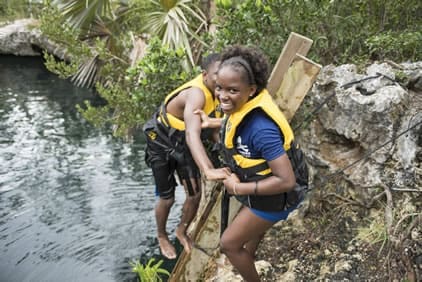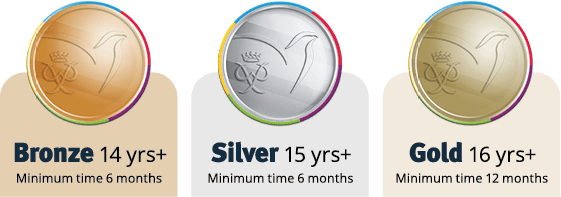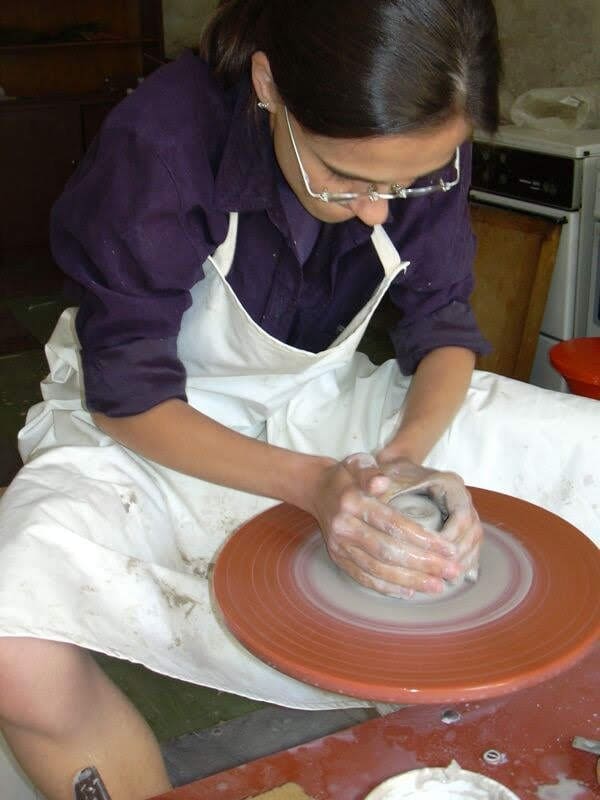The Duke of Ed Framework
Discover the Duke of Ed Framework
The Duke of Ed Framework has three Levels including Bronze, Silver, and Gold. Each Level is made up of four Sections which include Physical Recreation, Skills, Voluntary Service, and an Adventurous Journey.
To complete each Level of the Duke of Ed Framework, you will need to meet the requirements of each Section of the Framework. At Gold Level, you’ll also complete a Gold Residential Project. Find out more about what’s required from each section below.

The Duke of Ed has empowered me to demonstrate leadership, teamwork, and resilience. Akilan Nambi – Gold Level
The Duke of Ed Framework in Sections

To complete the Voluntary Service Section, you’ll be asked to spend some of your time over a period giving service in the community. To meet the requirements of the Duke of Ed Framework, you must be willing to carry out your voluntary work without pay, and it should only be done for a charity or not-for-profit organisation – not a business.
Your commitment is a minimum of 1 hour/week.
There are many examples of what Voluntary Service might look like, and it can be related to helping people in your local community, improving the environment, or caring for animals.
The Physical Recreation Section is good for your health and wellbeing, and it can also teach you valuable team skills as well as improve your confidence. Participating in physical activities can also provide you with a great opportunity to make new friends.
As part of your Duke of Ed Framework, you can choose to participate in any sport or physical activity which is likely to improve your fitness. Most importantly, any activity which requires you to burn energy can count to your Duke of Ed.
Your commitment is a minimum of 1 hour/week.
The Skills Section is all about helping you to develop your personal interests, talents, and hobbies. The Skills Section could also be an opportunity to try something completely different for the first time.
Your commitment is a minimum of 1 hour/week.
You can meet the requirements of the Skills Section by demonstrating your commitment to a skill and showing how you’ve increased your understanding or expertise over a period. Your chosen skill can be practically or socially focussed, but it shouldn’t be a physical activity. For example, while sports coaching can count as a skill, playing the sport won’t.
The Adventurous Journey Section is an exciting opportunity to step outside your comfort zone on a team journey. To complete your Adventurous Journey, you’ll work together with a group of other Duke of Ed Users to plan, prepare, and train for your journey before setting out on one Practice Journey and progressing to your final Qualifying Journey which will be assessed.
Your group can choose to complete their Adventurous Journey in several ways, provided your journey meets the requirements. From cycling and hiking the wilderness to kayaking and horseback riding, there are endless exciting possibilities for your Adventurous Journey.
You’ll only complete the Gold Residential Project when you reach the Gold Level of the Framework. To meet the requirements of the Gold Residential Project, you’ll be asked to spend no less than five days and four nights away from your usual residence and in the company of others you don’t already know. You can’t complete the project with your existing friends– you must do it independently with an organised group, registered charity, or other Approved Activity Provider.
With the aim of showing how you can demonstrate initiative and broaden your horizons in an unfamiliar environment, you’ll be expected to contribute to activities and work with others to achieve a common goal during your time away. Youth camps, residential language or ecology courses, leadership training, environmental cleanups, and maintenance or restoration projects are all examples of what your Gold Residential Project might look like.

